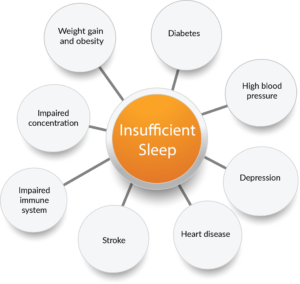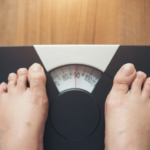How healthy is your sleep pattern?
Do you experience disrupted sleep or struggle falling asleep? Then you’re in the right place! Your genes, what you eat, drink and do has a huge impact on your sleeping patterns and quality of sleep. So just making some small changes to your lifestyle could mean a much higher quality of sleep!
What’s the genetic factor?
The Circadian Locomotor Output Cycles Kaput (CLOCK) gene is a key part of our internal body clock. Our 24-hour natural circadian rhythms directly influence our sleep patterns. This includes the amount of sleep we get and our preferences for sleep-wake timings. Morning types or so-called larks, naturally prefer to wake earlier and tend to be more productive in morning, as opposed to evening types, often referred to as owls, who prefer to get things done later in the day and into the evening.
What health problems are linked to insufficient sleep?
Irregular sleeping patterns can lead to many health problems such as obesity, heart disease, high blood pressure and even type 2 diabetes.
When you don’t get a good night’s sleep, you also don’t methylate properly which is an important biological process taking place in your body. Therefore when you don’t methylate properly, you don’t make melatonin, a natural biochemical that helps you fall asleep and stay asleep. It’s a vicious cycle that needs breaking by getting some good quality sleep.
When asleep, we ‘clear out’ neurotransmitters and hormones in the brain to prevent fatigue, low mood and anxiety. Which is why it is important to always get a good night’s sleep.
How can you get a better sleep?
There are many changes you can implement to improve your sleep pattern however, we recommend trying only two or three changes at first. Choose the changes you feel will be the easiest to make right now.
Make sure you are not over-stimulated before sleep
-
o Avoid alcohol within 3 hours of sleep
o Avoid caffiene after 2pm
o Avoid exercise at least 3 hours before sleep
Plan and prepare for sleep
- o Put sleep in your schedule, for maximum sleep quality aim for 8 ½ – 9 hours
o Avoid naps longer than 45 minutes unless you are sick or extremely sleep deprived
o Begin prepping for bed 30 minutes beforehand
Relax your brain before bed
-
o Wind down before sleep – try meditation, reading a book and writing down any tasks for the next day
o Try a hot aromatherapy bath to induce sleep – add 1-2 cups of Epson salts, ½ – 1 cup of baking soda and 10 drops of lavendar oil
Avoid bright/blue light before bed
-
o Turn off all white lights and opt for a more neutral/low light
o Try to avoid using your mobile phone or tablet while trying to sleep as blue light from electronic screens confuses our biological clock leading to reduction in sleep quality


 myDNAhealth
myDNAhealth